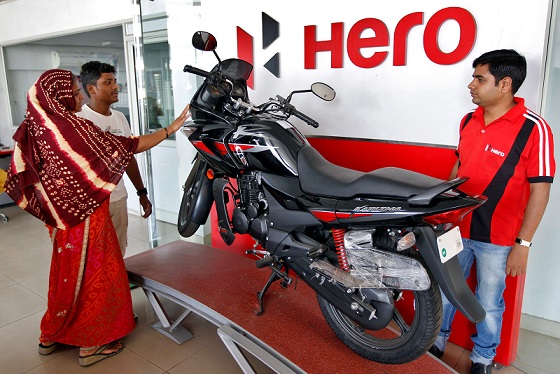Novo Nordisk, Eli Lilly fall after Trump comments on weight loss drug pricing
Investing.com -- The potential for a Goods and Services Tax (GST) rate rationalization is being viewed by analysts as a significant tailwind for India’s automotive and hospitality sectors.
The anticipated tax cuts are expected to stimulate consumer demand and improve earnings for key companies in both industries.
Research from Jefferies suggests that a possible GST cut, potentially timed for the festive season, could provide a substantial boost to auto demand, particularly for two-wheelers (2Ws) and small passenger vehicles (PVs).
These vehicle categories, which are currently taxed at 28-31%, may see rates reduced to 18-21%. Such a move would translate into a 6-8% reduction in on-road prices for most vehicles, a shift expected to accelerate sales.
Jefferies has raised its FY26–28 industry volume estimates for 2Ws and PVs by 2–6%, projecting faster growth for two-wheelers, which are now expected to achieve a 10% compound annual growth rate (CAGR) between FY25-28.
Reflecting the improved outlook, the firm has upgraded its earnings per share (EPS) estimates for companies such as TVSL, HMCL, MSIL, and Hyundai by 2–8%.
Among preferred picks, Jefferies highlights TVSL, MM, and MSIL, with TVSL and MM forecast to deliver the highest EPS CAGRs of 27% and 19%, respectively, over FY25-28.
The brokerage also notes that its earnings forecasts for these companies are 5-22% above consensus street expectations for FY26-28.
Analysts at J.P. Morgan point out that the GST reorganization into a simplified two-slab structure has sparked discussions about its implications for the hospitality industry.
They argue that any rationalization would be especially beneficial for the mid-scale hotel segment, which has lagged behind with a 5-6% CAGR in revenue per available room (RevPAR) from FY19-24, compared with 8-9% growth in the upper and luxury segments.
A lower tax rate on room rentals is expected to spur demand for budget and mid-scale hotels, while also supporting occupancy levels in the upper and luxury segments during lean seasons, when prices tend to fluctuate.
J.P. Morgan further notes that a more attractive tax proposition could revive corporate travel demand, which has remained subdued since the Covid-19 pandemic.
Among potential beneficiaries, Indian Hotels’ “lean-luxe” Ginger brand, with an average FY25 room rate of around 3,000 Indian rupees, stands out as particularly well positioned.
